 EDITOR'S PICK
EDITOR'S PICK
Owner Satisfaction With New Vehicles Is Up, But Not With Most EVs
02 Aug 2025 | Synopsis
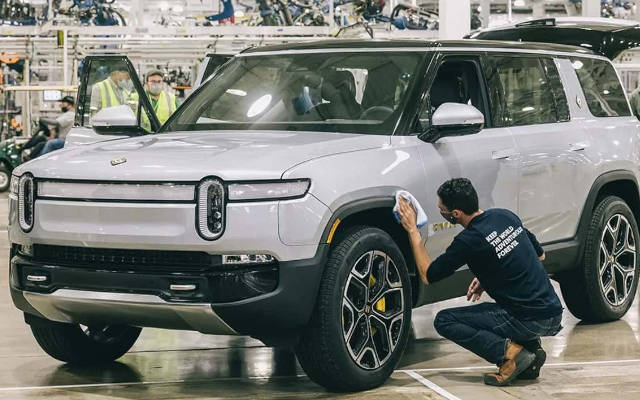 In J.D. Power's 2025 APEAL study, Rivian achieved the highest owner satisfaction score with 896 points, though it was ineligible for an official award. Tesla followed closely with a score of 892. Officially, Porsche ranked highest among premium brands for the second consecutive year with a score of 890, followed by Land Rover and BMW. This highlights strong satisfaction with new EV brands, even as overall satisfaction with non-Tesla EVs declined.
In J.D. Power's 2025 APEAL study, Rivian achieved the highest owner satisfaction score with 896 points, though it was ineligible for an official award. Tesla followed closely with a score of 892. Officially, Porsche ranked highest among premium brands for the second consecutive year with a score of 890, followed by Land Rover and BMW. This highlights strong satisfaction with new EV brands, even as overall satisfaction with non-Tesla EVs declined.Honda Prologue Review: Best-Selling EV Crossover Rising Fast
02 Aug 2025 | Synopsis
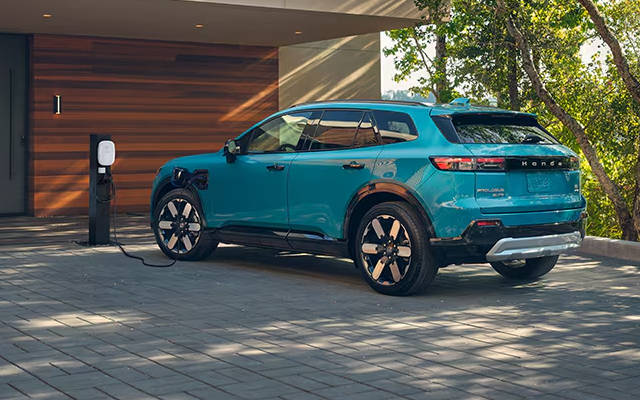 Honda's Prologue, a mid-size electric SUV built on GM's Ultium platform, saw July 2025 sales jump 83% to 6,318 units. Drivers praise its roomy, quiet cabin, smooth ride, and full $7,500 tax credit, while critics cite bland handling, modest cargo space, and 150 kW charging speed. Its comfort, range up to 308 miles, and Honda brand trust are fueling strong demand in the growing EV crossover market.
Honda's Prologue, a mid-size electric SUV built on GM's Ultium platform, saw July 2025 sales jump 83% to 6,318 units. Drivers praise its roomy, quiet cabin, smooth ride, and full $7,500 tax credit, while critics cite bland handling, modest cargo space, and 150 kW charging speed. Its comfort, range up to 308 miles, and Honda brand trust are fueling strong demand in the growing EV crossover market.Honda's Smallest Electric Car Can Power Your Home And More
01 Aug 2025 | Synopsis
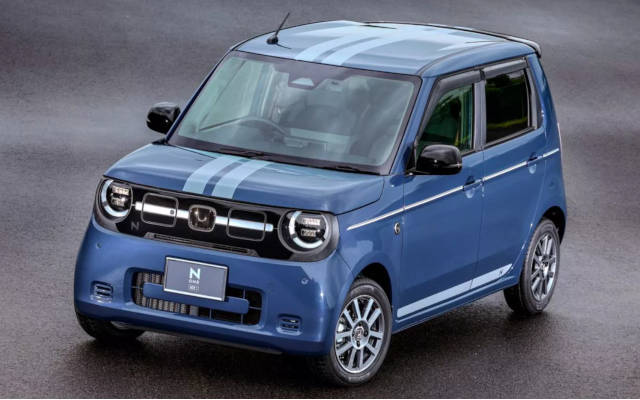 Honda's N-One e is a compact, retro-styled electric city car with a range of over 245 km (150+ mi). Its standout feature is the advanced Vehicle-to-Load (V2L) system, which can power not only small appliances and devices but even a home during a power outage. This functionality requires an optional adapter from Honda. The car supports 50kW DC fast charging, allowing for a quick 30-minute charge.
Honda's N-One e is a compact, retro-styled electric city car with a range of over 245 km (150+ mi). Its standout feature is the advanced Vehicle-to-Load (V2L) system, which can power not only small appliances and devices but even a home during a power outage. This functionality requires an optional adapter from Honda. The car supports 50kW DC fast charging, allowing for a quick 30-minute charge.Elon Musk Is Turning US Liberals Off Not Just Tesla But Electric Vehicles In General
01 Aug 2025 | Synopsis
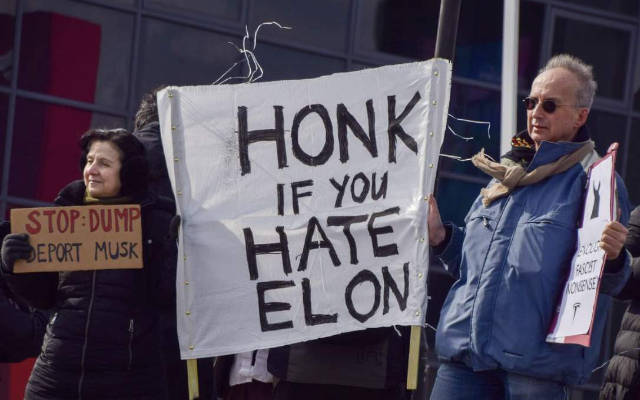 Recent study published in Humanities and Social Sciences Communications journal found Conservatives consistently disfavored purchasing both Teslas and EVs, irrespective of their perceptions of Musk. Liberals showed declining intentions to purchase Teslas compared with other EVs, and, to a lesser extent, declining intentions to purchase EVs in general. We found both effects to be associated with negative perceptions of Musk."
Recent study published in Humanities and Social Sciences Communications journal found Conservatives consistently disfavored purchasing both Teslas and EVs, irrespective of their perceptions of Musk. Liberals showed declining intentions to purchase Teslas compared with other EVs, and, to a lesser extent, declining intentions to purchase EVs in general. We found both effects to be associated with negative perceptions of Musk."For Electric Vehicles, Smaller Is Better
01 Aug 2025 | Synopsis
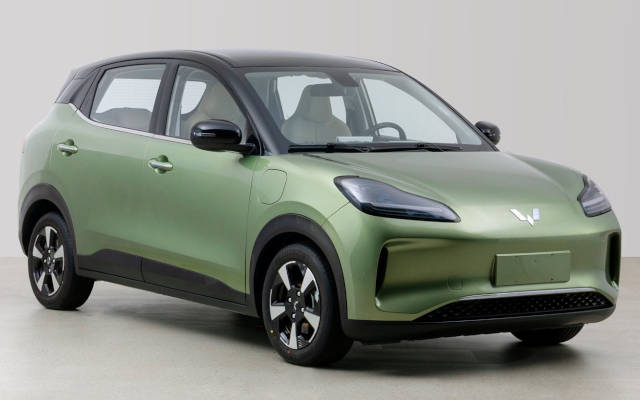 "Electric vehicles (EVs) are crucial for decarbonizing transportation, but the growing trend towards larger models like SUVs and pickup trucks poses a challenge. Smaller EVs consume less energy, require fewer critical minerals for batteries, and are better suited for cities. To ensure the transition to electric mobility is effective and equitable, priority should be given to smaller, more affordable EVs, alongside investments in public transport and active mobility."
"Electric vehicles (EVs) are crucial for decarbonizing transportation, but the growing trend towards larger models like SUVs and pickup trucks poses a challenge. Smaller EVs consume less energy, require fewer critical minerals for batteries, and are better suited for cities. To ensure the transition to electric mobility is effective and equitable, priority should be given to smaller, more affordable EVs, alongside investments in public transport and active mobility."
 Si Exclusive
Si Exclusive
Hydrogen's Flight Path: Fuel Cells, Turbines, and the Economics of Clean Aviation
10 Oct 2025 |  Aviation is shifting from Jet A to four fuel systems: electricity, hydrogen (fuel cell and combustion), SAF, and petroleum. Fuel cells suit short-haul aircraft; hydrogen combustion may power long-range jets. SAF bridges legacy fleets. Hydrogen costs - $5-$7/kg today, possibly $2/kg by 2040 - impact ticket prices and infrastructure decisions. Airport authorities, airlines, and governments will share deployment costs. Each fuel has distinct environmental pros and cons shaping aviation's net-zero future.
Aviation is shifting from Jet A to four fuel systems: electricity, hydrogen (fuel cell and combustion), SAF, and petroleum. Fuel cells suit short-haul aircraft; hydrogen combustion may power long-range jets. SAF bridges legacy fleets. Hydrogen costs - $5-$7/kg today, possibly $2/kg by 2040 - impact ticket prices and infrastructure decisions. Airport authorities, airlines, and governments will share deployment costs. Each fuel has distinct environmental pros and cons shaping aviation's net-zero future.
 11 Oct 2025 04:04:10 UTC |
RECENT PODCASTS
BYD Soars - Cheaper Tesla Models - The Bolt is Back - Rivian
SEARCH RSSTREAM
 48 New Postings In Past 24 Hours
48 New Postings In Past 24 Hours
Category:mobility
Region:Europe
Date:10 Oct 2025
Category:energy
Region:Global
Date:10 Oct 2025
Category:mobility
Region:SoAmerica
Date:10 Oct 2025
Category:energy
Region:NoAmerica
Date:10 Oct 2025
Category:mobility
Region:NoAmerica
Date:10 Oct 2025
Category:finance
Region:AsiaPacific
Date:10 Oct 2025
Category:policy
Region:NoAmerica
Date:10 Oct 2025
Category:finance
Region:NoAmerica
Date:10 Oct 2025
Category:mobility
Region:AsiaPacific
Date:10 Oct 2025
Category:policy
Region:NoAmerica
Date:10 Oct 2025